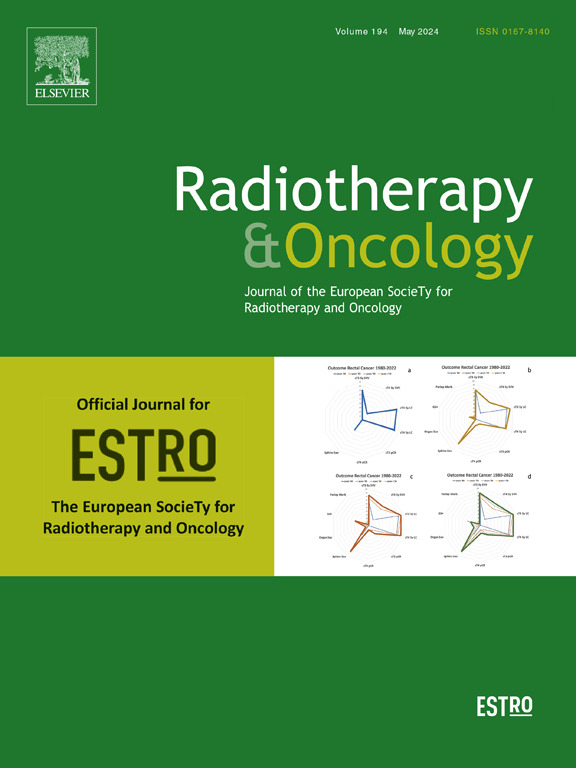Analysis of patients with locally advanced rectal cancer given neoadjuvant radiochemotherapy with or without RT dose intensification: A multicenter retrospective study – ATLANTIS part I
IF 4.9
1区 医学
Q1 ONCOLOGY
引用次数: 0
Abstract
Introduction
Preoperative radiochemotherapy (RCHT) is the standard of care for locally advanced rectal cancer (LARC). While there are several data regarding chemotherapy intensification, actually, no reliable data directly comparing different radiotherapy (RT) dose levels are available. The present study aimed to compare intensified RT versus standard dose in patients with LARC.
Materials and methods
Data from 12 centers were collected for the current large retrospective study. The primary end-point evaluated whether RT dose intensification was associated with an increased pathological complete response (pCR). The secondary end-points explored the relation between RT dose and interval to surgery, downstaging, and RT-related toxicity. Subgroup analysis according to primary tumor stage was also performed.
Results
1028 patients were analysed. All patients received combined RCHT with (364) or without (664) a RT boost. Patients underwent surgery after a median 10 weeks (IQ range 5–28). The overall pCR rate was 21.5 %. In the boost and no-boost groups, the pCR was 26.6 % (97) and 17 % (114) (p = 0.00), respectively. As a subgroup analysis, the pCR stratified by interval to surgery was 10 %, 23 %, 26.3 %, and 39.3 % (p < 0.000) in the boost group versus 10.6 %, 20.8 %, 19.3 %, and 20.4 % (p = 0.018) in the no-boost group. cT3 patients operated on ≥ week 11 and cT4 patients, regardless of time to surgery, received a significant benefit by the RT boost in terms of pCR rate. Patients in the boost group had a higher rate of grade ≥ 3 acute gastrointestinal toxicities (6 % vs. 1.7 %; p = 0.003).
Conclusion
Our results suggest that RT dose intensification (boost) in LARC might significantly increase the pCR rate, although with a small increase in acute toxicity. While pCR seems only partially improved by prolonged time to surgery in the no-boost group, a progressive and significant pCR improvement in patients treated with boost over time was observed. RT boost seems to be beneficial only in more advanced primary tumors.
求助全文
约1分钟内获得全文
求助全文
来源期刊

Radiotherapy and Oncology
医学-核医学
CiteScore
10.30
自引率
10.50%
发文量
2445
审稿时长
45 days
期刊介绍:
Radiotherapy and Oncology publishes papers describing original research as well as review articles. It covers areas of interest relating to radiation oncology. This includes: clinical radiotherapy, combined modality treatment, translational studies, epidemiological outcomes, imaging, dosimetry, and radiation therapy planning, experimental work in radiobiology, chemobiology, hyperthermia and tumour biology, as well as data science in radiation oncology and physics aspects relevant to oncology.Papers on more general aspects of interest to the radiation oncologist including chemotherapy, surgery and immunology are also published.
 求助内容:
求助内容: 应助结果提醒方式:
应助结果提醒方式:


